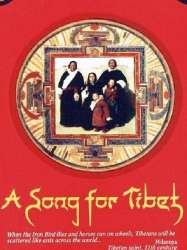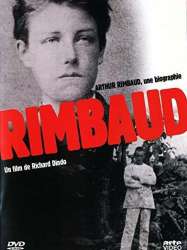Dangerous Edge: A Life of Graham Greene is a american film of genre Documentary released in USA on 1 january 2013 with Graham Greene
Dangerous Edge: A Life of Graham Greene (2013)

If you like this film, let us know!
Dangerous Edge: A Life of Graham Greene is a biographical documentary film about Graham Greene, originally broadcast nationally on PBS on March 29, 2013 and distributed internationally. It was directed by Thomas P. O'Connor and narrated by Derek Jacobi. Contributors and cast include Graham Greene himself, his wife Vivien Greene, Bernard Diederich, John le Carré, David Lodge, John Mortimer, Bill Nighy, John Perkins, Paul Theroux and biographers Richard Greene (no relation) and Norman Sherry.
Actors
Comments
Leave comment :
Suggestions of similar film to Dangerous Edge: A Life of Graham Greene
There are 113 films with the same actors, 8970 with the same cinematographic genres, 852 films with the same themes, to have finally 70 suggestions of similar films.If you liked Dangerous Edge: A Life of Graham Greene, you will probably like those similar films :

Charles Dickens's England (2009)
Directed by Julian Richards
Origin United-kingdom
Genres Documentary, Historical
Themes Films about writers
Actors Derek Jacobi
Rating68%





Charles Dickens's England takes the viewer on a journey of all of the most important places, towns and cities that were the inspiration to some of the most famous settings in literature; Cooling Church in Kent used by Dickens in the opening chapter of Great Expectations; Miss Havisham’s house in Rochester; the almost forgotten London Roman Baths used by David Copperfield; Joe Gargery’s cottage in Chalk; the notorious Bowes Academy, the harshest of the Yorkshire schools now known to the world as Dotheboys Hall in Nicholas Nickleby.
 , 1h14
, 1h14Directed by Ben Wright
Genres Documentary
Themes Films about writers, Medical-themed films, Documentaire sur une personnalité, Documentary films about health care, Films about psychiatry
Rating73%






A Song for Tibet (1991)
, 57minutesOrigin Canada
Genres Documentary
Themes Films about writers, Films about immigration, Films about religion, Films about Tibet, Documentary films about law, Documentaire sur une personnalité, Documentary films about politics, Documentary films about religion, Political films, Films about Buddhism
Rating72%






Arthur Rimbaud: A Biography (1991)
, 2h21Origin France
Genres Biography, Documentary
Themes Films about writers, Poésie, Films about sexuality, Documentary films about the visual arts, Documentaire sur une personnalité, Documentaire sur la poésie, LGBT-related films, LGBT-related film
Actors Jacques Bonnaffé, Bernard Bloch, Christiane Cohendy, Madeleine Marie, Albert Delpy, Jean Dautremay
Rating75%





Ernest Delahaye, ami d'enfance d'Arthur Rimbaud, se remémore sa rencontre avec le poète et sa famille à Charleville-Mézières. De sa naissance en 1854 jusqu'à sa mort à Marseille en 1891, on assiste à la destinée d'un être hors-norme :
 , 1h58
, 1h58Directed by Alex Gibney
Origin USA
Genres Documentary
Themes Films about writers, Documentaire sur une personnalité
Actors Johnny Depp, Warren Beatty
Rating75%





L'écrivain, journaliste américain Hunter S. Thompson, génial fauteur de troubles, précieux témoin d'une époque unique, sorte de poète, voire de prophète halluciné, amoureux désespéré d'une Amérique qui n'a cessé de le tromper, appartient à cette race de phénomènes typiquement «sixties» dont on ne retient généralement que les frasques. Ayant très jeune pris conscience que son appartenance à la classe moyenne inférieure le privait de privilèges accordés à ses amis mieux nantis, le jeune homme a développé un goût extrême pour la provocation. Celle-ci est devenue le carburant principal de son métier de journaliste. Chacune de ses investigations ont été plutôt des immersions, donnant naissance à des enquêtes bourrées d'anecdotes,, d'expériences souvent à la limite de la légalité.

The Disenchantment (1976)
, 1h37Directed by Jaime Chávarri
Genres Drama, Biography, Documentary
Themes Films about writers, Documentaire sur une personnalité
Rating78%





The Panero is an illustrious traditional family from Astorga with literary links extending for generations. The patriarch, Leopoldo Panero, was the best regarded poet in Spain during his time. He died suddenly of a heart condition in 1962. Twelve years later, his widow, the still beautiful and elegant Felicidad Blanc, in the company of two of her sons Juan Luis and Michi, is shown in an outdoor homage to the late poet.
 , 11minutes
, 11minutesOrigin France
Genres Documentary
Themes Films about writers, Poésie, Films about sexuality, Documentary films about the visual arts, Documentaire sur une personnalité, LGBT-related films, LGBT-related film
Illustrée par un montage d'images et de photographies, sur un rythme musical afro-jazzy en harmonie avec le récit en voix off par Claude Nougaro de l'Alchimie du verbe.
 , 1h40
, 1h40Directed by Donald Brittain
Origin Canada
Genres Documentary
Themes Films about writers, Documentaire sur une personnalité
Actors Richard Burton, Donald Brittain, Marjorie Bonner
Rating70%





Long métrage documentaire sur l’écrivain Malcolm Lowry. Aux prises avec ses démons, ses cauchemars, ses fantasmes, obsédé par le suicide d’un de ses amis, Lowry vécut une longue agonie d’alcoolique. Ce qui ne l’empêcha pas de livrer au monde des pages qui le situent parmi les plus grands écrivains du 20e siècle. Des gens qui l’ont bien connu témoignent du voyage aux enfers de cet homme, dont l’âme fut errance, le corps embarras et l’œuvre génialité.

Examined Life (2008)
, 1h28Origin Canada
Genres Documentary
Themes Films about writers, Documentaire sur une personnalité
Rating69%






The Bronte Sisters (1979)
, 2hDirected by André Téchiné
Origin France
Genres Drama, Biography, Documentary
Themes Films about writers, Films about families
Actors Isabelle Adjani, Marie-France Pisier, Isabelle Huppert, Pascal Greggory, Patrick Magee, Hélène Surgère
Rating63%





Four young siblings: Charlotte, Branwell, Emily and Anne, live a stoic existence in a small village in the English country side. Their old father, an Anglican minister, a rigid spinster aunt and Tabby, the maid, complete their household. The siblings have artistic ambitions and rely upon each other for companionship. Branwell is a painter and a self-portrait with his sisters is worthy of the general admiration of the family. He wants to pursue a professional career, but only goes as far as to establish a friendship with Leyland, a sculptor. Emily's favorite pastime is to walk across the bleak moors that surround the village dressed as a man. Anne, the youngest of the siblings, is her companion. Charlotte, more ambitious than the others, convinces their reluctant aunt to give her money to go to Belgium in order to study French. Her idea is to eventually come back and open a school. With their aunt's money and permission, Charlotte and Emily go to Brussels. Once there, Charlotte falls secretly in love with her teacher Monsieur Heger, who is already married. Emily plays the piano at school, but has a hard time there and is teased by her classmates for being English and Protestant in a Catholic country. Meanwhile, in England, Anne finds employment as a governess, taking over the education of the daughter of a wealthy family.
 Connection
Connection



